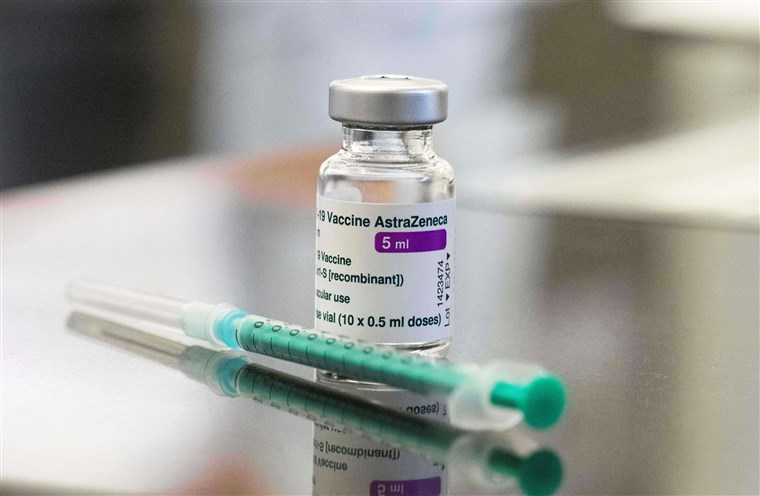Frozen in time - why communication is necessary for vaccine rollout
By: Isaac Bruce
Thomas Kienzle / AFP - Getty Images
I’m certain it's an understatement to claim that we are living in trying times - the novel COVID-19 has practically glued its name on the walls of every household in the world over this past year. It's on the minds of just about everyone with cable, internet or otherwise, and you can believe great-aunt Sal is sharing with all of her girlfriends her “beat ‘em all” anti-virus juicing techniques. Point is, COVID-19 is the stage and life revolves around it at the moment.
Since the topic of COVID-19 is so novel, a communication bubble has formed squarely around it. And as with any topic that is as devastating as the COVID-19 pandemic has been, companies and organizations must be delicate with their relationship with the public. Communication is key and mistrust from their public audience is easier to accumulate.
So, picture this for a second: you’re an organization on the cutting edge of vaccine deliverance and your samples get processed for approval. Things look great, American enthusiasm for a vaccine is at an all-time high. And yet, for all the promise and peace of mind, your vaccine and organization appear to fall through every fumble in communication it possibly can until any moves for vaccine turnout is put on ice!
Welcome Astrazeneca! A British-Swedish biotechnology company that has been sweeping the headlines lately, and for all the worst reasons! The company is noted for its recent entrance in developing a neutralizing antibody agent for the novel coronavirus. What is equally novel about Astrazeneca is its poor communication with its publics. From 79% efficacy brilliance to everything being left on the cutting floor. Vaccines are meant to be put on ice, but never this severely…
As of March 31, Astrazeneca’s vaccines have been put on hold following concerns of negative reactions after injection. This comes after Astrazeneca believed their own vaccine to work well with people of all ages. In what may be a case of an organization letting its mouth loose without much of a head to hang from, Astrazeneca’s response has been dismal. What greater way to lose trust in the public than to continue to assume the vaccine can serve people of all ages? Meanwhile people younger than 60 are suffering from blood clots following injection.
The ultimate sin for any organization responsible for its public’s well being, is to report false findings of their product. Yet, in all of its infinite wisdom, Astrazeneca has been reported falsifying the efficacy of their vaccine. The purported 79% efficacy of their vaccine? Not as rock-solid as it appeared.
So what does this mean for the organization looking to establish trust with their publics? Effective vaccine rollout is only successful if people have confidence in the results. Confidence enough to get a vaccine to begin with.
In the aims of seeing how important effective communication is for people getting a vaccine, I went to social media to scour for feedback. The results of my homework were decidedly mixed. Dothepingu, a reddit user, noted that: “Nothing, I will take whatever vaccine is offered. A 2 second search brings up credible sources that tell me the vaccine is no more dangerous than many other common medications.”
Nextdoor users collectively gave their input through a survey, and the results, once again, were mixed.
Though the majority claim that they are weary about communication and 1/3 of the respondents found communication to be crucial, it is clear that communication is a factor people look for when they seek to get a vaccine.
Now imagine your organization has made all the unnecessary pitfalls in trying to get your organization’s vaccine approved in America. Then comes the failure of your organization to realize what it is the public needs to know first and foremost - how safe is your vaccine? Astrazeneca now has blood on their hands, and while some failings are not exclusive to their vaccine, the world is weary and the line of communication is not there.
Astrazeneca has certainly dug itself into crisis control, yet it did not have to be this severe of an issue if the communication was solid. As PR practitioners, we must remember the fine line of mutuality between our organization and the public our organization serves. Give as much information that is necessary, and in return, your public will give you proper feedback. Never be disingenuous.
Astrazeneca’s solution in a time of crisis could have been less dramatic than it was. The company was not the only player in the pool, yet it has arguably disqualified itself indefinitely.
--
Isaac Bruce is a public relations student at California State University, Northridge. He lives for interactive entertainment and believes he might have had a video game controller in his hands right out of the womb. His desire is to be in the PR department for Sony’s Playstation division.



